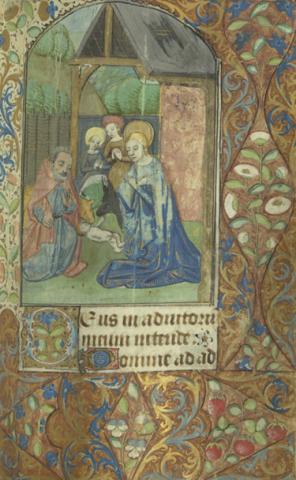Medieval Philadelphia
The Friends of the Bryn Mawr College Libraries provides critical support for internships, exhibitions, programs, and special projects.
Inspired by the sack of Constantinople, Poggio Bracciolini spent his retirement years writing De miseria conditionis humanae (On the Misery of the Human Condition). Poggio was writing in the1450s. In 1995, a heavily-annotated 15th-century copy of his manuscript made its way to Bryn Mawr (courtesy of Phyllis Goodhart Gordan ’35), and in 2018, a digitized version was uploaded on Bibliotheca Philadelphiensis, a multi-institutional web-based repository of all the area’s medieval and Renaissance manuscripts.
Manuscripts in this project include straightforward, functional texts intended for the students of science, philosophy, and religion as well as jewel-like works of art in the collections of institutions such as Bryn Mawr, the Philadelphia Museum of Art, and the Rosenbach
Museum and Library.
In addition to the Poggio, Bryn Mawr is contributing about 50 manuscripts (of approximately 475 manuscripts in the Bibliotheca repository), including a trove of 15th-century treasures—works by the humanist historian Leonardo Bruni; Latin translations of works of church fathers John Chrysostom and Eusebius of Caesarea, who wrote in Greek; and an Italian edition of Petrarch’s Rime.
And 2020 will bring two exhibitions celebrating BiblioPhilly, both of which will feature at least one book from each participating institution. In February, the Free Library of Philadelphia will host an exhibition curated by project director Dot Porter, curator of digital research services at Penn’s Schoenberg Institute for Manuscript Studies. In March, the University of Pennsylvania will present another, curated by Nicholas Herman, the curator of manuscripts at the Schoenberg Institute.
In the meantime, the Bibliotheca Philadelphiensis images are accessible online, in the public domain, and easily downloadable at high resolution. Organized by the Free Library of Philadelphia, Lehigh University, and the Penn Libraries, the project involves a total of 16 institutions and received funding from the Council on Library and Information Resources with support from The Andrew W. Mellon Foundation.
Published on: 05/31/2019
